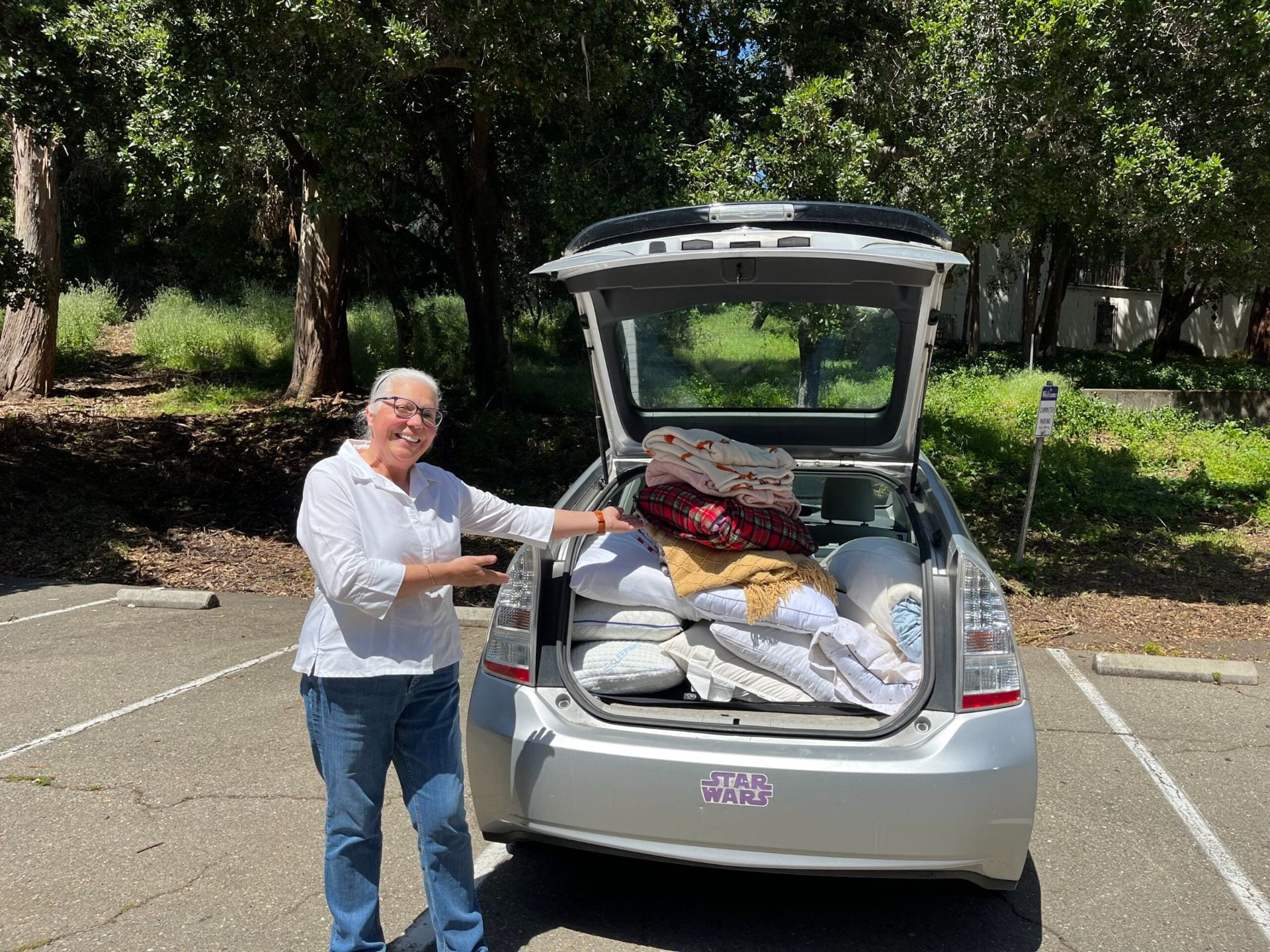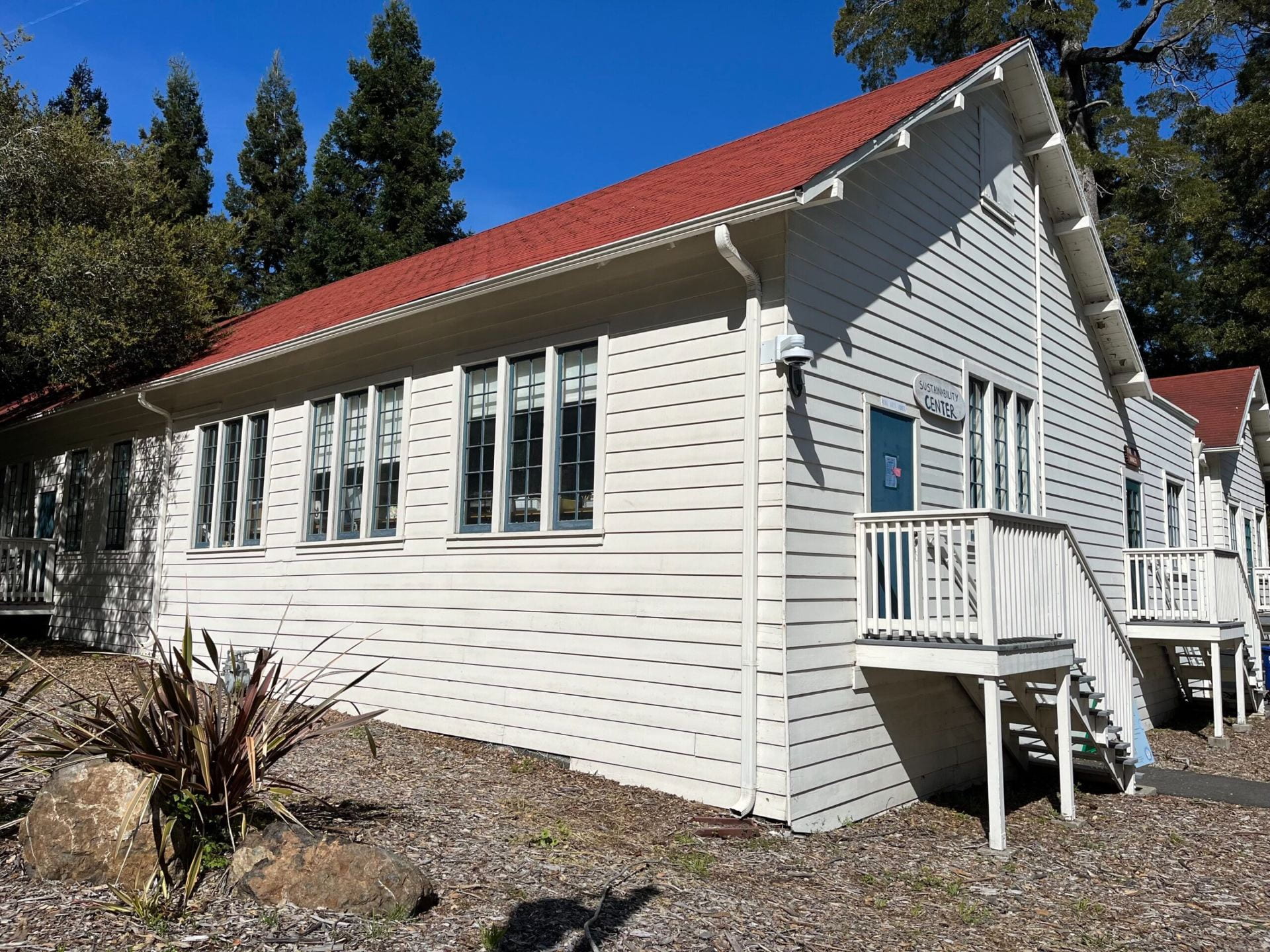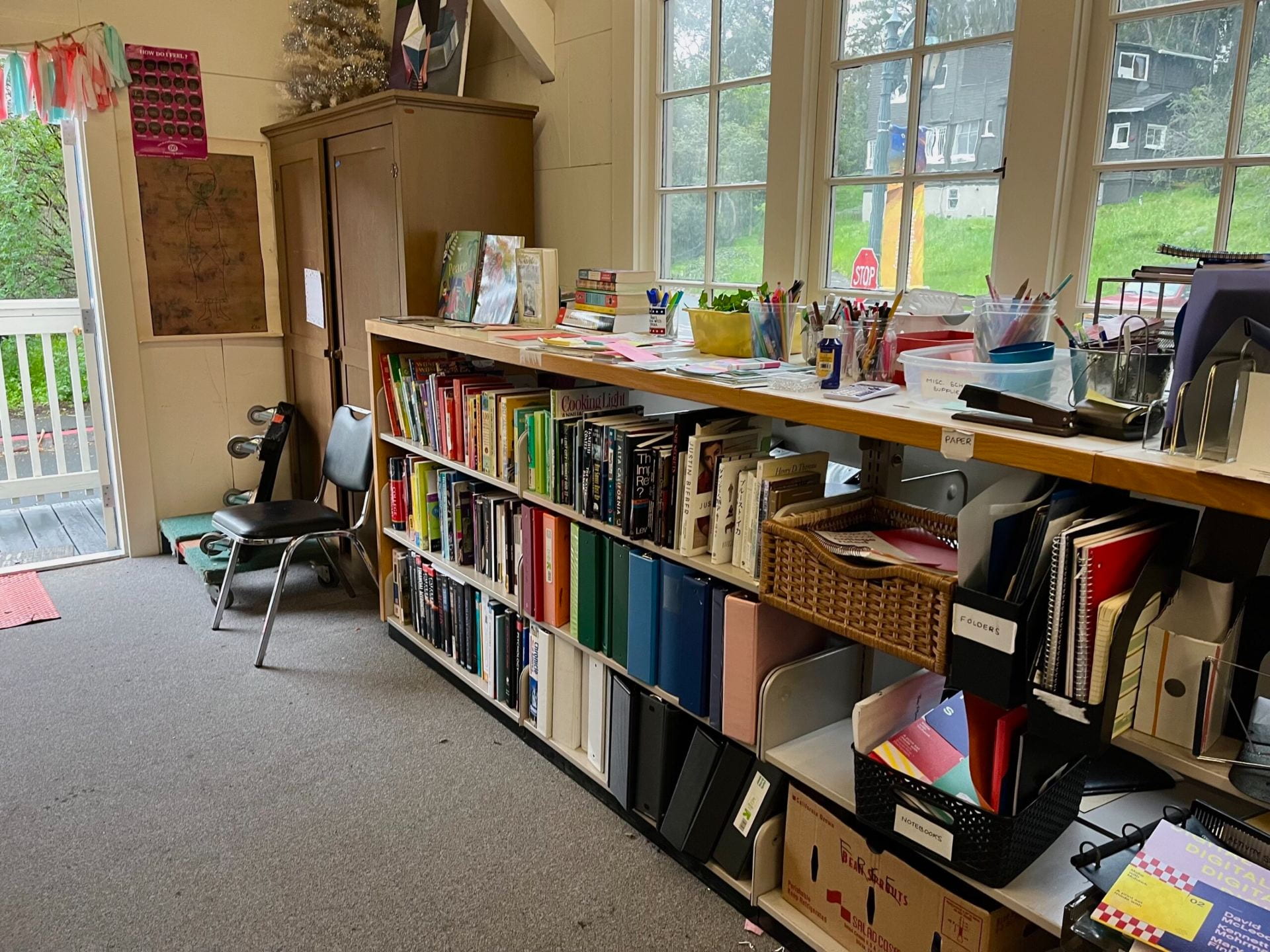Donate Your Dorm

Image provided by Andrew Gonzales. Luan Stauss standing next to her car filled with pillows and blankets ready to be donated.
The clothes you wear may not define who you are, but how you shop for them does. Because buying second hand isn’t just about saving money- it’s about saving our planet.
Mills Institute at Northeastern University is taking a sustainable approach to shopping for new clothes and supplies. Each semester, students and faculty donate their gently used items to the school’s reuse depot, a zero-cost thrift store, where the items are either sold year-round or given away to local community organizations.

Image provided by Andrew Gonzales. The outside of the Reuse Depot.
According to the United States Census Bureau, in 2021, the poverty rate in the United States was 11.6%, whereas in Oakland, California, it stood at 13.8%. As of July 2023, Oakland has a 4.1% unemployment rate, compared to the national average of 3.5%.
Mills Institute at Northeastern University recognizes the higher than national average unemployment and poverty rates in their local community. As a large institution with ample resources, they want to give back to those who need it most.
Luan Stauss, the senior facilities manager at the Oakland campus and a 40-year local resident, reached out to her friends and contacts to identify local nonprofits in need of clothes, bedding, furniture, office supplies, and anything else the school had to offer.
This Spring, the school organized donations to six nonprofits in Oakland: Men of Valor Academy, Writer’s Grotto, Make it Home, Coliseum College Prep Academy, Youth Together, Cardea Health, and Homies Empowerment Center.
Men of Valor Academy is a re-entry support organization that supports adult males on probation in their transition into society by providing housing, employment, education, and mentorship.
Stauss was particularly moved by the response of the nonprofit. She stated, “this organization said you just don’t understand in order to give these men transitional housing, we’ve put two by fours down to make them a bed and put a pallet on top. Now they’ll have a bed with drawers and a mattress and they’re able to have a little more dignity.”
Whether you’re a recently released convict or a first-generation college student, accessible resources have the ability to encourage success.
Andrew Gonzales, the sustainability manager at the Oakland campus, spoke about the personal impact of this process; “It is a resource that has been promoted to our first-generation minority and low-income students as a place for them to come to get free school supplies, free art supplies, free clothing, free cookware, among other things.”
And, as the depot has evolved, it has become “a resource that we offer to everyone: our staff, faculty, students, as well as our outside community members,” not just our low-income students.
Students can shop sustainably –at no cost- for their school supplies and clothes. In the past couple of years, thrifting has become more popular among people of all backgrounds with the realization of how unsustainable the clothing industry is.

Image provided by Andrew Gonzales. Shelves of books and school supplies in the Reuse Depot.
Each year, the fashion industry guzzles 79 trillion liters of water – equivalent to 32 million Olympic-size swimming pools – and produces 92 million tons of waste. Additionally, the industry is responsible for 8-10% of global CO2 emissions.
By purchasing used clothing, the students, staff, and Oakland community members aren’t contributing to the massive amounts of waste and pollution it takes to create new clothes. “One of the best ways to shop for clothing… is by buying something that’s already been produced and made, versus buying something new,” said Gonzales.
Year after year, an item of clothing or a fan or really anything in good condition can be returned to the reuse depot and used again by someone in need. Donating what you no longer use prevents it from going to a landfill and puts it “into the hands of people who need it. And there’s nothing better than that,” Stauss said.
Written by Julia Laquerre, September 12th, 2023
